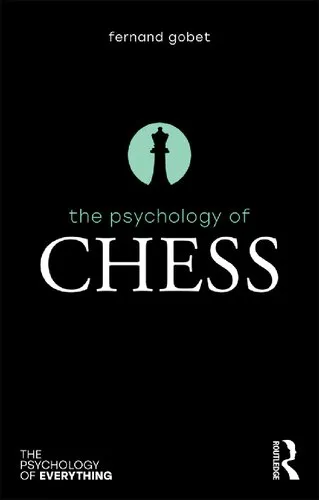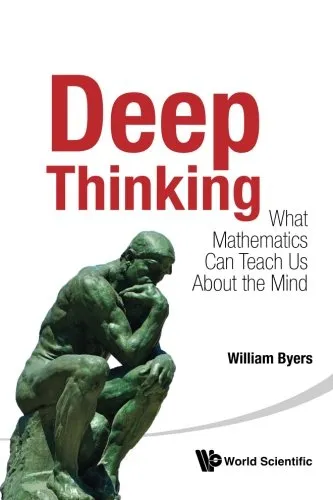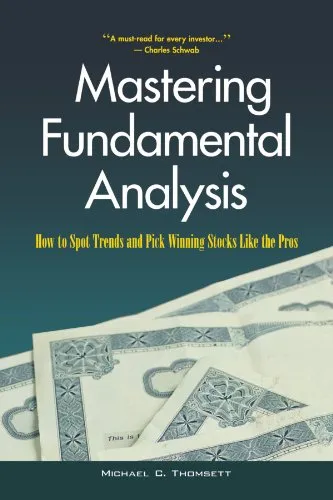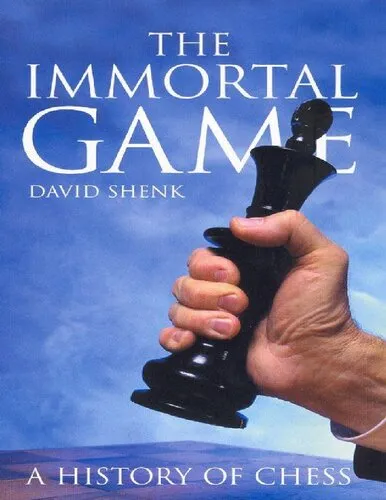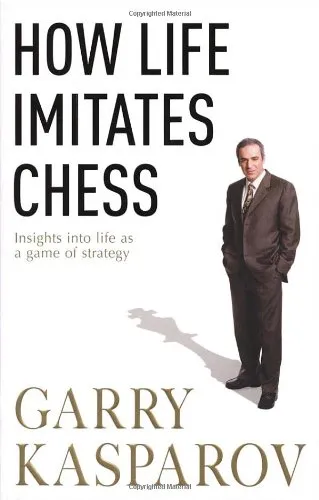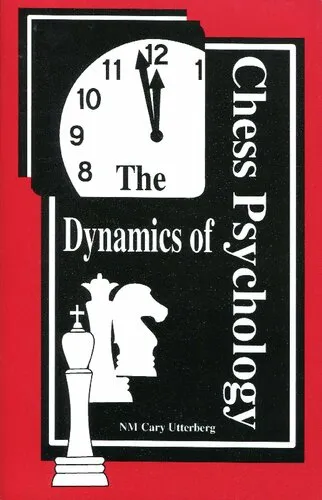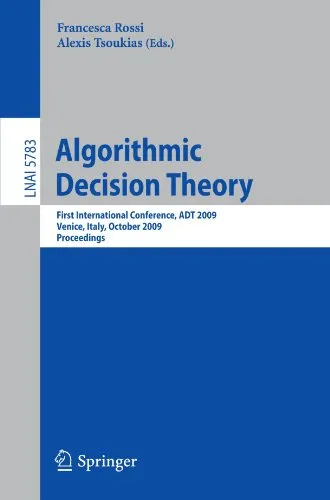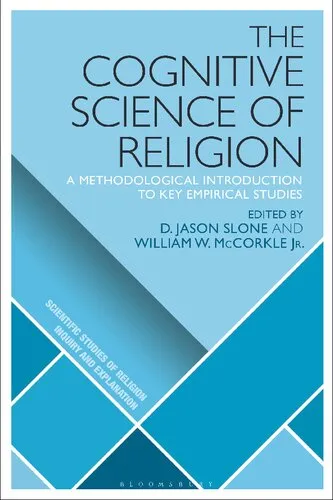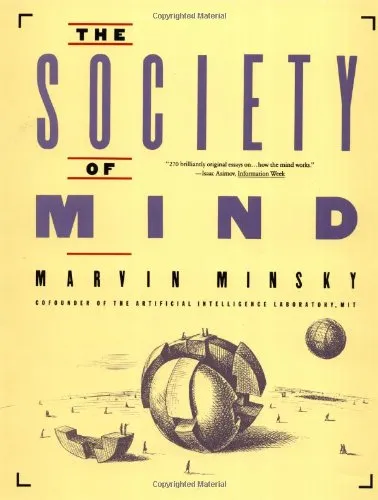The Psychology Of Chess
5.0
بر اساس نظر کاربران

شما میتونید سوالاتتون در باره کتاب رو از هوش مصنوعیش بعد از ورود بپرسید
هر دانلود یا پرسش از هوش مصنوعی 2 امتیاز لازم دارد، برای بدست آوردن امتیاز رایگان، به صفحه ی راهنمای امتیازات سر بزنید و یک سری کار ارزشمند انجام بدینکتاب های مرتبط:
معرفی کتاب "The Psychology Of Chess"
کتاب "The Psychology Of Chess" اثر فرناند گوبرت، پژوهشی جامع و علمی در زمینه روانشناسی شطرنج است. این کتاب به بررسی سیستماتیک و عمیق از دیدگاههای مختلف روانشناختی در بازی شطرنج میپردازد و برای تمامی علاقهمندان به این بازی فکری و علمی توصیه میشود.
خلاصهای جامع از کتاب
کتاب "The Psychology Of Chess" نه تنها به جنبههای فنی شطرنج میپردازد، بلکه به بررسی دیدگاههای روانشناسی و شناختی در این بازی میپردازد. نویسنده تلاش میکند تا با بهرهگیری از دیدگاه روانشناسی شناختی به مسائل مهمی همچون استراتژی بازی، حافظه، و چگونگی تصمیمگیری در موقعیتهای پیچیده بپردازد. در این کتاب، مطالعات علمی بهروز و پژوهشهای گسترده در مورد شطرنج بررسی میشوند و تأثیر این بازی بر فعالیتهای ذهنی و روانی بازیکنان بهدقت تحلیل میگردند.
گوبرت در این کتاب به تحلیل تواناییهای شناختی مورد نیاز در شطرنج، از جمله تفکر انتقادی و استدلال منطقی، میپردازد و نحوه بهبود این تواناییها را بررسی میکند. همچنین، او تأثیر عوامل روانی چون استرس و انگیزه را بر عملکرد بازیکنان شطرنج مورد بررسی قرار میدهد.
نکات کلیدی کتاب
- بررسی جامع روانشناسی شناختی در شطرنج
- تحلیل تصمیمگیری و استراتژیهای ذهنی بازیکنان
- مطالعه تأثیرات روانی محیطی بر عملکرد شطرنجبازان
- بررسی حافظه، استدلال و حل مسئله در شطرنج
نقلقولهای معروف از کتاب
شطرنج تنها یک بازی نیست؛ بلکه پنجرهای به ذهن انسان است.
درک عمیق از شطرنج، درک بهتر از فرآیندهای ذهنی پیچیده است.
چرا این کتاب مهم است؟
کتاب "The Psychology Of Chess" به دلایلی متعدد اثری فوقالعاده و مهم است. اول از همه، این کتاب پل ارتباطی بین علم روانشناسی و هنر شطرنج ایجاد میکند. این ارتباط به شناخت دقیقتر از عملکرد مغز و روان در شرایط رقابتی و استراتژیک کمک میکند. دوم، این کتاب به بازیکنان شطرنج امکان میدهد تا به شیوههای جدیدی برای بهبود بازی خود دست یابند و عملکرد خود را در بازیهای رقابتی افزایش دهند. همچنین این کتاب میتواند به عنوان یک منبع علمی قابل اعتماد برای پژوهشگران و دانشجویان حوزه روانشناسی و علوم شناختی باشد که به دنبال درک بهتر از تأثیر فعالیتهای ذهنی و استراتژیک بر عملکرد انسان هستند.
Welcome to the intricate world of chess, where the subtle interplay of strategy, cognition, and psychology unveils itself in fascinating detail. "The Psychology of Chess" by Fernand Gobet is an immersive exploration into the cognitive processes and psychological intricacies that compel and captivate both players and enthusiasts around the globe. This book offers more than a mere surface-level examination of the game; it delves deeply into the minds of those individuals who dedicate themselves to mastering this timeless art. As you journey through these pages, you will uncover the fascinating intersection of psychology and chess, an amalgamation that reveals insights not only pertinent to the game but also applicable to broader aspects of human cognition and performance.
Detailed Summary of the Book
"The Psychology of Chess" embarks on an extensive examination of the cognitive processes exhibited by chess players, ranging from novices to grandmasters. The book systematically explores how various psychological faculties such as memory, perception, and problem-solving skills are harnessed in the context of chess. It presents a detailed analysis of pattern recognition, decision-making, and the role of intuition, illustrating how players mentally engage with the chessboard. By dissecting the psychological aspects of competition and training, the book provides a nuanced understanding of what differentiates an average chess player from a champion. Furthermore, the book delves into historical and cultural influences that have shaped the evolution of chess, offering readers a broader perspective on its status as a global intellectual pursuit.
Key Takeaways
- Understand the cognitive mechanisms that underpin chess expertise, including the importance of chunking and pattern recognition.
- Learn about the psychological factors influencing decision-making, and how players manage stress and pressure during critical moments.
- Explore the differences in cognitive processes between expert and novice players, supported by empirical research and case studies.
- Gain insights into effective training regimes and the role of deliberate practice in developing chess mastery.
- Appreciate the historical and cultural contexts that contribute to the rich psychological tapestry of chess.
Famous Quotes from the Book
Chess, while a game of infinite complexity, serves as a mirror to the human mind: revealing strengths, weaknesses, and capacity for creativity.
In the intricate dance of chess, intuition and logic converge, allowing players to glimpse the profound depths of human cognition.
Through chess, one not only learns the art of strategizing but also discovers a deeper understanding of the self.
Why This Book Matters
"The Psychology of Chess" shines a light on the lesser-seen aspects of the game, making it an invaluable resource for players, psychologists, and educators alike. By connecting cognitive psychology with the practical elements of chess, the book contributes to a more holistic understanding of both. It invites readers to reflect on how the skills and insights gained from chess can be transferred to other areas of life, fostering personal growth and intellectual enrichment. The comprehensive research and engaging narrative make it a must-read for anyone interested in the cognitive sciences or the psychological dimensions of human performance. Whether you are a seasoned player seeking to refine your skills or a newcomer curious about the cognitive challenges of the game, "The Psychology of Chess" offers a treasure trove of knowledge and inspiration.
دانلود رایگان مستقیم
شما میتونید سوالاتتون در باره کتاب رو از هوش مصنوعیش بعد از ورود بپرسید
دسترسی به کتابها از طریق پلتفرمهای قانونی و کتابخانههای عمومی نه تنها از حقوق نویسندگان و ناشران حمایت میکند، بلکه به پایداری فرهنگ کتابخوانی نیز کمک میرساند. پیش از دانلود، لحظهای به بررسی این گزینهها فکر کنید.
این کتاب رو در پلتفرم های دیگه ببینید
WorldCat به شما کمک میکنه تا کتاب ها رو در کتابخانه های سراسر دنیا پیدا کنید
امتیازها، نظرات تخصصی و صحبت ها درباره کتاب را در Goodreads ببینید
کتابهای کمیاب یا دست دوم را در AbeBooks پیدا کنید و بخرید
1767
بازدید5.0
امتیاز1
نظر98%
رضایتنظرات:
5.0
بر اساس 1 نظر کاربران
mohammad_taha
11 اکتبر 2024، ساعت 14:09
Thanks a lot, I wanted this book!
Questions & Answers
Ask questions about this book or help others by answering
No questions yet. Be the first to ask!
